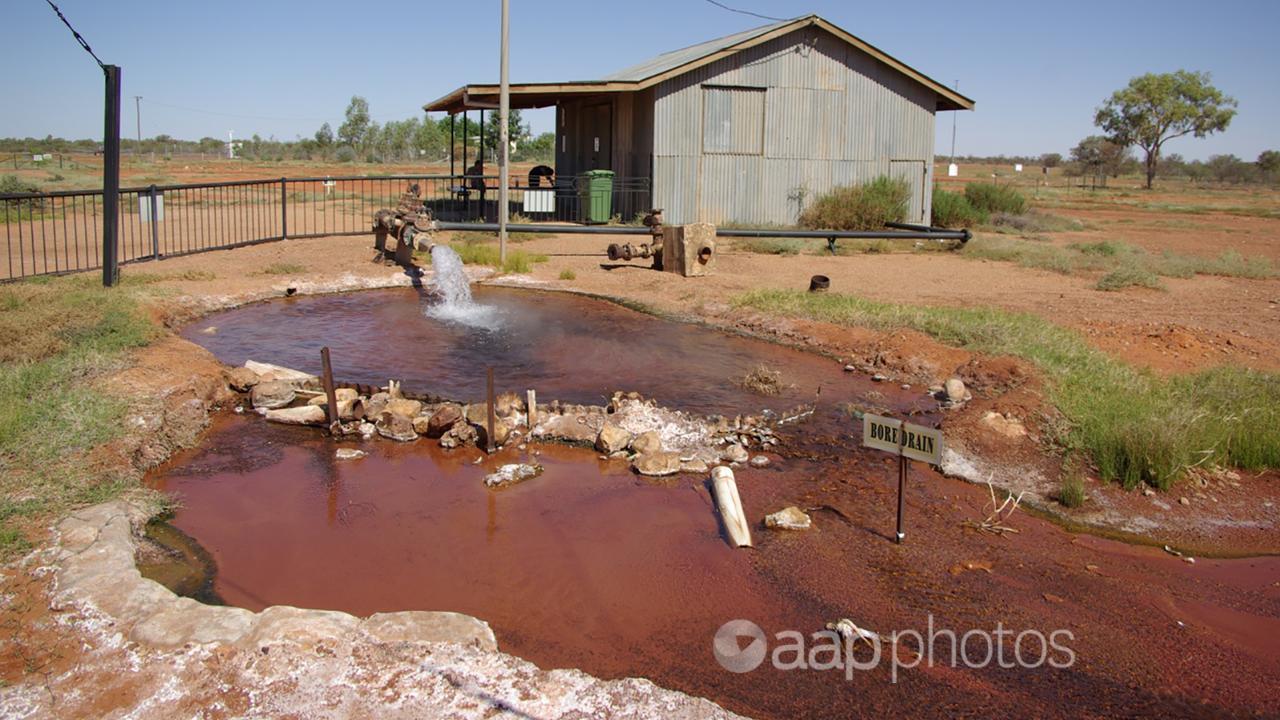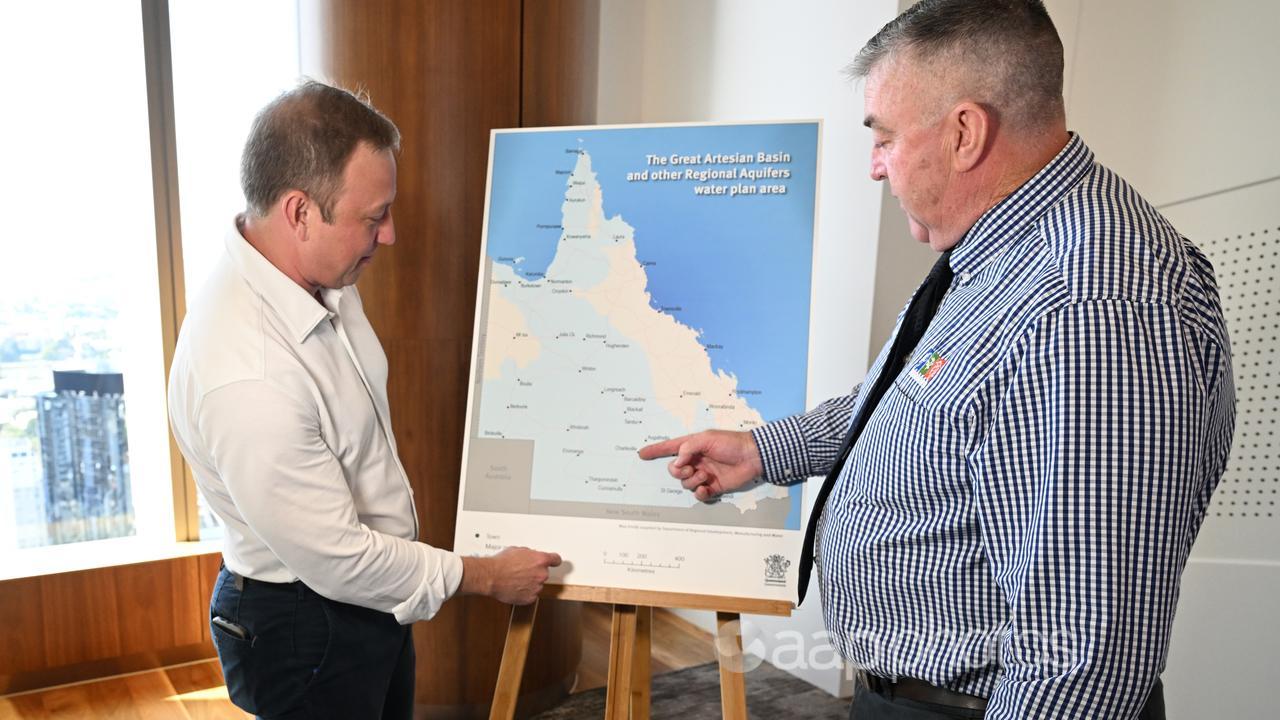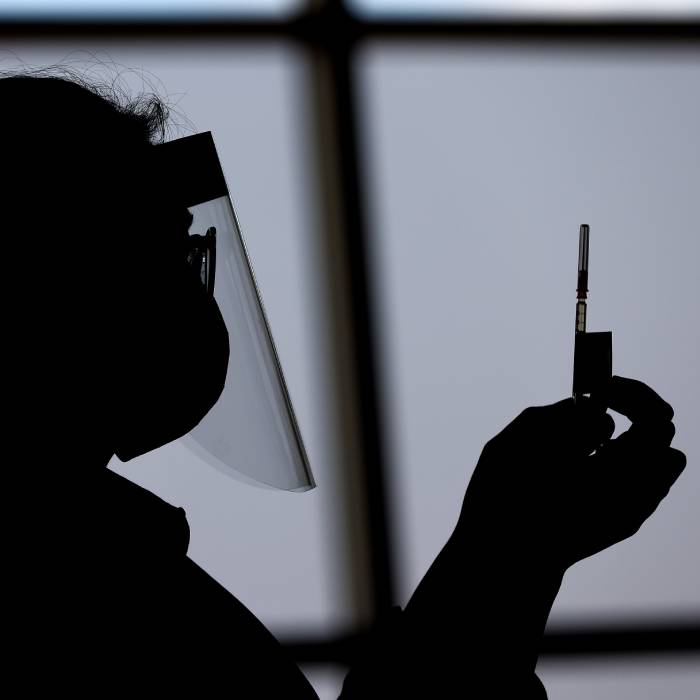A landmark decision to protect one of the world’s largest underground freshwater reservoirs has prompted calls for a federal carbon capture storage ban.
Queensland Premier Steven Miles said he would ban carbon capture and storage (CCS) in the Great Artesian Basin, a water source for 180,000 inland people with an estimated 65 million gigalitres.
The proposed laws will extend the ban to any enhanced oil or petroleum recovery that uses a greenhouse gas stream.
“The Great Artesian Basin is just too important to Queensland to mess with,” Mr Miles said on Friday.
“That’s why I’m announcing today that we will ban CCS in the Great Artesian Basin.”
Mr Miles toasted the announcement by guzzling down a bottle of basin water provided by Murweh Shire Mayor Shaun Radnedge.
Environment lobby group Lock the Gate Alliance called on the federal government to follow Queensland’s lead and ban CCS projects.
“The Albanese government needs to scrap the dangerous Future Gas Strategy, and other states and territories that overlay the basin ought to follow Queensland’s example,” national co-ordinator Ellen Roberts said.
“Lock the Gate is also calling on the Queensland government to protect the Great Artesian Basin from further damage by coal and gas projects.”

Mr Miles said Queensland would lobby the federal government and other states to protect the basin, which intersects four Australian states and territories.
About 70 per cent of its area sits beneath Queensland.
The basin spans almost 1.7 million square kilometres, more than one-fifth of the Australian continent.
The Queensland government had earlier rejected mining giant Glencore’s controversial plan to inject tonnes of wastewater into the basin.
Glencore had planned to capture carbon dioxide from a coal-fired power station, liquefy it and store it 2.3km underground, pumping more than 300,000 tonnes of wastewater into an aquifer as part of a three-year trial.
Glencore argued no damage would have been caused by injecting the waste product into the aquifer, a body of rock that holds groundwater.
That was rejected by the state environment department on the basis that it would cause “irreversible” change to groundwater quality and environmental values.

Glencore called the decision disappointing and a missed opportunity for the state, saying it sent mixed messages to industry stakeholders looking to invest in low-emission technologies such as carbon capture storage.
Mr Miles said the proposed laws would clarify that activities involving greenhouse gas storage or the injection of a greenhouse gas stream into the basin would not be permissible.
However, other carbon capture activities could continue elsewhere in Queensland subject to rigorous assessment and approval processes.
“We will continue to review the safety aspects of greenhouse gas storage in the state to support future generations of Queenslanders and to ensure Queensland’s great natural environment is preserved,” Mr Miles said.
Katter’s Australian Party leader Robbie Katter hailed the decision to protect the basin, saying community and crossbench lobbying had proven that “David can indeed defeat Goliath”.
“Common sense and logic have prevailed and in one of the very rare occasions this parliament, the KAP will be strongly in favour of the government’s legislation to protect the Great Artesian Basin.”




















